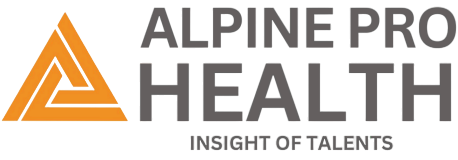Accurate CPT coding in outpatient care is critical not just for reimbursement but also for maintaining compliance and improving overall revenue cycle performance. However, claim denials are a persistent challenge faced by outpatient providers, often stemming from avoidable CPT coding errors. Understanding and applying best practices in CPT coding can significantly reduce denial rates and boost financial health.
Understanding CPT Coding in Outpatient Settings
Current Procedural Terminology (CPT) codes are standardized codes used to describe medical, surgical, and diagnostic services. In outpatient care, these codes are vital for translating the services provided into billable claims. However, due to the complexity of coding guidelines and payer-specific policies, errors can easily creep in, leading to claim rejections or denials.
Top Reasons for CPT Coding Denials
Before we get into the tips, let’s identify some common causes of CPT-related denials in outpatient care:
- Incorrect code selection
- Mismatched diagnosis and procedure codes (lack of medical necessity)
- Unbundling of services
- Missing modifiers or incorrect modifier usage
- Upcoding or downcoding
- Duplicate billing
- Expired or deleted CPT codes
By targeting these common mistakes, providers can improve their clean claim rate and reduce payment delays.
CPT Coding Tips to Avoid Denials in Outpatient Care
1. Stay Updated with CPT Code Changes
The American Medical Association (AMA) updates the CPT code set annually. It’s vital for coders and billing teams to stay current with these changes to avoid using outdated or deleted codes.
2. Match CPT Codes with the Appropriate ICD-10 Codes
One of the most frequent denial reasons is a mismatch between the procedure (CPT) and diagnosis ICD-10-CM codes. Insurers require medical necessity for services rendered, and this is justified through correct diagnosis-procedure linkage.
3. Use Modifiers Correctly
Modifiers provide additional information about the procedure performed. In outpatient care, incorrect or missing modifiers often lead to claim denials or reduced payments.
Common Modifiers to Know:
- Modifier 25: Significant, separately identifiable E/M service on the same day as a procedure
- Modifier 59: Distinct procedural service
- Modifier 51: Multiple procedures
- Modifier 76: Repeat procedure by same provider
4. Avoid Unbundling of Services
Unbundling refers to reporting multiple CPT codes for procedures that are included in a single comprehensive code. This is a red flag for auditors and payers and can result in denials or even penalties.
5. Document Medical Necessity Clearly
Even if the CPT code is correct, a lack of documentation to support medical necessity can lead to denials. Payers often review clinical documentation to ensure the procedure was essential.
6. Conduct Regular Internal Audits
Regular chart audits can identify recurring coding errors and denial trends. This not only improves accuracy but also helps maintain compliance with payer and CMS regulations.
7. Use Denial Analytics to Improve Coding Practices
Analyzing denial data can reveal patterns and root causes. For example, if a large number of claims are denied for modifier errors or code mismatches, targeted intervention can resolve the issue.
8. Ensure Proper Use of Evaluation and Management (E/M) Codes
Outpatient E/M coding has undergone significant changes in recent years. Using the right E/M level code based on time spent or medical decision-making is critical.
9. Train and Certify Your Coding Team
Certified professional coders (CPCs) or outpatient-specific certified coders bring expertise that reduces errors. Ongoing education ensures your team remains updated on evolving coding rules and payer requirements.
10. Collaborate with Providers
A strong coder-provider relationship ensures proper documentation and reduces back-and-forths. Coders can guide providers on how to document services accurately to support the appropriate CPT codes.
How Technology Can Help Reduce CPT Coding Denials?
Technology-driven solutions like Clinical Documentation Improvement (CDI) tools, AI-assisted coding platforms, and advanced EHR-integrated coding modules can reduce human error and enhance accuracy.
Examples:
- Computer-Assisted Coding (CAC) software
- Pre-bill and post-bill audit tools
- Automated claim scrubbing solutions
These tools can pre-check for code errors, bundling conflicts, and documentation gaps before claim submission.
Why Choose Alpine Pro Health for CPT Coding Excellence?
At Alpine Pro Health, we understand the complexity of outpatient CPT coding and the impact denials can have on your revenue cycle. Our team of certified outpatient coders leverages the latest coding standards, payer guidelines, and AI-powered audit tools to deliver accurate, denial-free coding services. We specialize in pre-bill coding audits, real-time denial tracking, and modifier management, ensuring that your claims are clean and fully compliant the first time. By integrating Clinical-AI and automation, we help outpatient providers reduce claim rejections, increase first-pass rates, and ultimately improve revenue integrity. When you partner with Alpine Pro Health, you’re not just outsourcing coding, you’re empowering your practice with precision, performance, and peace of mind.
Conclusion
CPT coding in outpatient care is both an art and a science. Avoiding denials requires a mix of accuracy, up-to-date knowledge, strategic audits, and the right tools. By following these CPT coding tips, providers can significantly reduce denial rates, improve cash flow, and strengthen their compliance posture.
Remember, the key to denial prevention lies in proactive coding practices, clear communication, and continuous improvement. Stay ahead of the curve, and let your outpatient coding process become a driver of revenue, not a roadblock.


